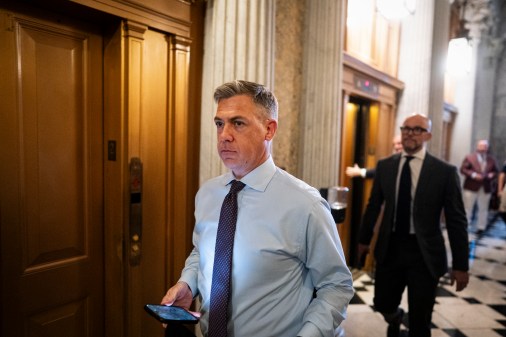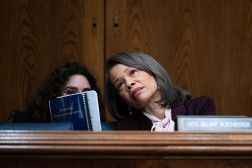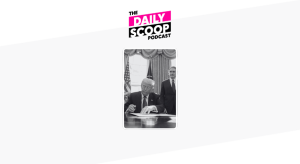Commerce blockchain bill sails through House committee

A bipartisan bill placing the Commerce Department at the center of the country’s embrace of blockchain technology advanced out of a key House panel Tuesday, putting it on deck for consideration before the full chamber.
The Deploying American Blockchains Act of 2025 from Florida Reps. Kat Cammack and Darren Soto directs the Commerce secretary to advise the president on the deployment and use of blockchain and other distributed ledger technology, as well as applications built on blockchain or other DLT tokens. Sens. Bernie Moreno, R-Ohio, Lisa Blunt Rochester, D-Del., and Tim Sheehy, R-Mont., introduced a related bill in the upper chamber Thursday.
“This bill is about securing America’s future in a rapidly evolving digital world,” Cammack, a Republican, said during the House Energy and Commerce Committee markup. “Blockchain technology is transforming industries, strengthening our economy, enhancing national security and revolutionizing how we manage data. But we’re at a crossroads. Nations like China are racing ahead, claiming dominance in this space. We cannot afford to fall behind.”
Cammack made the case that the technology is more than “just a buzzword.” Rather, the decentralized, public ledger that tracks transactions and digital assets across networks “is a tool to empower our businesses and safeguard our supply chains,” she said. “It is the backbone of innovations in supply chain security, digital identity and smart contracts. It’s about fostering innovation, creating jobs and protecting our national interests.”
Soto, a Democrat, said the Commerce Department “needs to take a more aggressive role” with blockchain technology. The legislation tasks the agency’s secretary with developing policies and recommendations tied to its use, exploring issues including cybersecurity, storage and security systems, artificial intelligence, fraud reduction, e-commerce, regulatory compliance and more.
“Blockchain helps keep information fixed and trustworthy so it can’t be altered later on,” Soto said. Having that “fixed ledger” empowers the government to track information on everything “from public health to disaster relief to resolving other conflicts,” he added, “gathering that data and then helping … our best scientists … to help solve some of the toughest problems that face both the nation and the world.”
The legislation also calls on Commerce to establish a Blockchain Deployment Program to promote U.S. leadership on the technology, and to consider policies and programs that encourage blockchain adoption within federal agencies. The Commerce secretary would be required to deliver an annual report to Congress on blockchain activities.
Cammack said she hopes the bill provides blockchain innovators with clarity and assuages any concerns they may have about “being pushed offshore.” By putting Commerce in charge of blockchain activities, the Florida Republican said consumer protection and national security will be “front and center” as the technology expands.
“It ensures that companies can innovate with confidence and that our values, not those of authoritarian regimes, shape the global digital infrastructure of the future,” she said. “This is about leadership and this is about economic opportunity, and it is about securing America’s role as the world’s most innovative, most free and most forward-thinking economy.”
This story was updated April 11, 2025, to note the introduction of a blockchain bill in the Senate.






